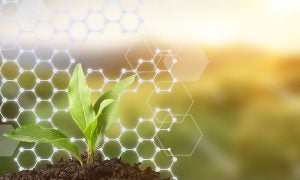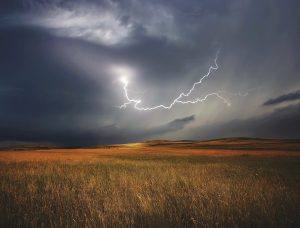Technology, innovation, and farming go hand in hand. Venture onto any American farm and you’ll see technology in action. Over thousands of years, we’ve transitioned from farming with our bare hands to utilizing satellites and DNA to make our jobs easier and our fields more productive.
Can you imagine where we’ll go in the coming generations? (Well, assuming we still live on this planet and the Earth isn’t destroyed by a meteorite.) That’s exactly what I did — imagine. And I’ve come up with a wishlist of future agriculture tools, technology, and contraptions.
1. Nano-Bot Field Consultants
Precision agriculture employs tools like satellites, drones, and sensors to fine-tune farming practices. It measures and quantifies soil conditions, nutrient deficiencies, moisture levels, and crop health so that farmers can respond with the right inputs at the right time. It allows targeted application of inputs where they’re most needed.
Imagine that technology on steroids. We’re talking about nano-bots that are assigned to each field. They’ll measure soil nutrients, analyze plant conditions, and assess pest risks throughout the season. Then they’ll implement processes and remedies to maximize yields while saving on inputs and minimizing losses.
Imagine scouting those fields.

2. Patty the Produce Picker
Labor costs are currently crushing fruit and vegetable farmers. These crops are often delicate and require gentle hands to pick them for fresh markets. While some clunky automated harvesters exist, they’re usually only suitable for processed produce.
Enter Patty. She’s a smart robot equipped with super dexterity that allows her to pick those precious goods without damaging them. Patty is smart enough to harvest red tomatoes while leaving green ones to ripen. She knows people prefer to cook fresh green beans that aren’t smashed. And she even knows how to delicately package fresh peaches.
Patty will solve agriculture’s persistent labor shortages, handle our fresh produce with care, and lower overall costs.
3. AI-Generated Bioengineered Crop Varieties
Bioengineering has assisted with some pretty big problems. Bt corn reduces or eliminates insecticide treatments on millions of acres. Roundup Ready crops effectively manage weed pressure. Their yield boosts mean we can grow more food without increasing the number of farmed acres.
But it takes time to develop them, test them, regulate them, and make them commercially available. What if we could speed up that process?
We could tap the power of artificial intelligence to develop new crop varieties. These new bioengineered crops could be developed on an annual basis with an eye toward weather patterns, availability of inputs, and even specific field conditions. The computers can conduct the research much faster than we can, and it can assess what safety measures are appropriate.

4. Veterinary Scanners
Veterinary studies have no doubt advanced animal health and good husbandry practices. But it’s somewhat limited because our animals are limited. They can’t tell us when something hurts. They can’t describe their symptoms. And we can’t explain to them how to behave for advanced scans and treatments.
But what if we had a way to do that? Advanced veterinary scanners could quickly evaluate, diagnose, and suggest treatments for our farm animals, pets, and even wild animals. It wouldn’t matter that they can’t talk to us, we would just know what they needed when they needed it. And this kind of scanner would allow us to elongate their lives while also increasing their quality of life.
Of course, it wouldn’t just benefit our livestock. Our furry best friends will also use this technology
5. Weather Drones
Farmers always complain about the weather. Not enough sun. Too much rain. It’s too hot. Then it’s too cold. Who can keep up?
Well, maybe weather drones could.
We could utilize drones to manipulate the local weather, bringing just the right amount of rain, sun, heat, and cool. And we could use the technology to make field conditions just right for farm workers. Gone are the days of toiling in the burning sun! The drones can produce a convenient cloud to provide a temporary reprieve.
But … then what would people talk about?

Now it’s your turn. If you could invent anything to solve a problem, make something easier, or turn the page, what would you create?
Amanda Zaluckyj blogs under the name The Farmer’s Daughter USA. Her goal is to promote farmers and tackle the misinformation swirling around the U.S. food industry.



